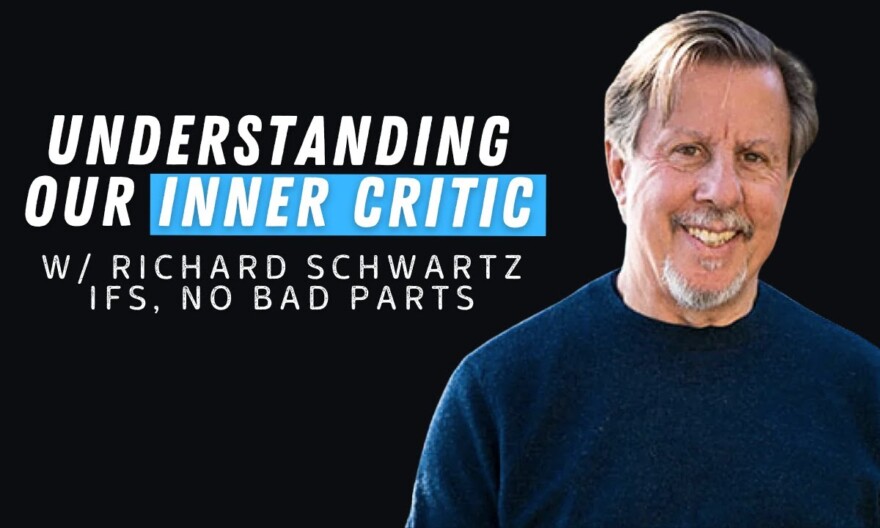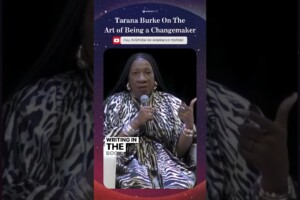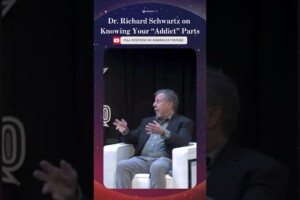
We hope you enjoyed this session at Wisdom 2.0.
Sign up for the free Weekly Wisdom News Inner Journey Newsletter:
Check out our online and in-person events at Wisdom 2.0:
Join our Online Practice Community (Pay What You Can)
Foreign I really want to give Dick a chance to Begin to explain when we talk about Parts work what are we talking about Because I think I have an idea in my Head of what that might mean and maybe You all have ideas in your head about What that might mean so I'd love for you To start when uh this whole idea of Parts and how many parts do I have or Does a person have how might we identify Those and how does ifs try to balance Out the different parts in a person such That there is kind of Greater Freedom so And thank you for coming again it's Great to be with you tomorrow and ah So this goes back a while as uh Emily Said I'm trained as a family therapist And in the early 80s I had a collection Of bulimic clients we were doing an Outcome study that weren't getting Better with straight family therapy and Started talking about these parts of Them And I got a little nervous because they Were talking about them as if they had a Lot of autonomy I thought maybe these Are a multiple personality and Disordering science until I noticed I've Got them too some of mine are as extreme About food as theirs are and then I got Intrigued because she these clients Could describe how they interacted with Each other
So if something bad happened in one of My clients life this critic would attack Her brutally And that would bring up a part to make Her feel totally bereft and empty and Alone And then to the rescue almost would be The bench that would take her out of her Body but then the critic would come back And attack her again so as a family Therapist sounded like these sequences Of interaction and a little system in There and I just started to experiment With helping clients get to know these Parts At first trying to stand up to the Critic or control the binge but finding That that made it worse yeah but if Clients could get into what we're now Calling a mindful state And not just observe their thoughts and Emotions which is most mindfulness Practice but actually engage them From a place of curiosity and compassion Even these parts would start talking to Them and tell them all kinds of things That surprised them about how they got Into these roles Some of which were quite destructive but My position is we're all multiple Personalities anybody hear a multiple Personalities I've never had that many people raise Their hands
Not we don't all have multiple Personality disorder but we all have Parts and uh and some of them My position is the natural state of the Mind to be divided that way to be Multiple That each of them have valuable talents And resources But trauma and then attachment injuries Will take them out of their naturally Valuable State and force them into these Roles that they don't like that they Feel are really necessary to keep us Safe And so a lot of the work is designed to Help them trust that they don't have to Do that anymore and then they transform Great so for example with with the Critic so one way would be just to be Aware that there's a Critic voice Happening right now that's judging me Um you had said you you really within Ifs you actually engage the critic and Listen to the critic so how would that How how does that look in terms of that Like listening and engagement and Curiosity do you have a Critic I have a Critic yeah I have a Critic all right so If I were working with you Sauron I Would say I'd like you to focus on that Voice or however you experience it in Your body or around your body find it in Your body Okay
My attentions come is brought to right The right side of my head as well and as You notice it there how do you feel Toward it In other words do you hate it or you try To get frustrating you're frustrated With it yeah I really appreciate it that Much yeah They're hard to appreciate it first and It's telling me right now I better do a Good job at this Clearing it right now pretty loud So listen to that yeah don't mess up Don't mess up yeah So what I found is and let's keep going So If you could please ask the parts that Hated or frustrated with it to just give Us a little space to get to know it so Just see if those parts would be willing To step back a little bit and relax and We're not going to give the critic more Power we're just gonna get to know it a Little bit okay I think so so focus on It again up here and tell me how you Feel toward it now Um now it's kind of empty I just see This uh I feel this like uh Sensations and a sense of this kind of Dark space that's on the right side of My head I don't but there's not an Emotional charge at this moment Does it feel like you'd be willing to Get to know it now
Sure yeah I'm curious about what it is All right so let it know that okay And just see how it reacts to your Curiosity As best I can tell at school Okay but we can fall a little surprised But cool yeah he's like oh yeah oh okay Yeah so this would go on Uh and we would ask questions of it like What's it afraid would happen if it Didn't Badger you all the time And it common answers to that are you Would get hurt or you wouldn't perform Well or you you would take a risk or And so at that point we know now what It's trying to protect and I would have You showed appreciation in there for at Least trying to protect you even though It does it in this heavy-handed way Sometimes and often right at that point They just just uh relax yeah and that Appreciation means a lot to those parts Yeah because you know most of us are Fighting with them all day right





